How to Program
Learn programming languages
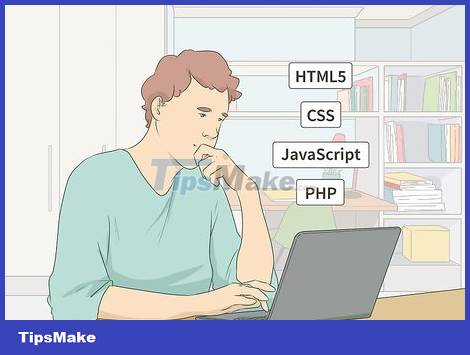
Don't worry too much about the language you choose. When starting out, many people find it difficult to choose a language. However, the use of logic and data structures is almost constant, regardless of the language used. Those are the most important skills, and you can absolutely hone them in any language.
When choosing a language, focus on what type of programming you want to start with and from there, choose the appropriate base language. For example, if you want to learn web building, you can start with HTML5, then learn CSS, JavaScript, and PHP. If you want to write desktop applications, start with C ++ or another basic programming language.
If you pursue this career, you will realize that you will probably never use the first programming language you learned. Instead, you will learn new languages through research and experimentation.

Find free resources online for your chosen language. The Internet is a treasure trove of free tutorials, classes and videos tailored to the language you choose. You can grasp the basics of nearly any introductory language in just one day.
Famous sites include Bento, CodeAcademy, Code.org, html.net, Khan Academy, Udacity, W3Schools, Code School, etc.
There are also many beginner tutorials on wikiHow that are tailored to specific languages.
You can find tutorials for almost any programming situation on YouTube.
Stack Exchange is one of the reputable answer sites for all your programming questions.

Archana Ramamoorthy, MS
Director of product management
Archana Ramamoorthy is Director of Technology Product Management at Workday. She is a product ninja, a security advocate, and ambitious to expand the tech industry. Archana received her BS from SRM University and MS from Duke University and has worked in product management for over 8 years.

Archana Ramamoorthy, MS
Director of Product Management
Expert shares : "When I got into programming, I didn't know anything about computer design or programming. When I wanted to learn how to program, I started by reading Java books and using the above information. In today's world, we have so many sources of information, so it's easy to learn new skills!"
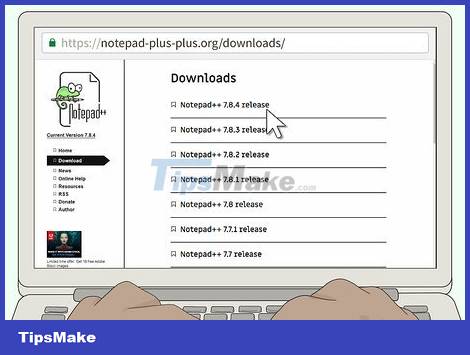
Get a good editor. Many programming languages allow the use of external editors to write code (programming code). Look for an editor that displays indentation and programming code highlighting.
Some famous programs include Notepad++ (Windows), TextWrangler (OS X), and Edit (available on all devices).

Download the required compiler. Some programming languages need a compiler to run the code. The compiler converts the written code into a lower-level language that the computer can process. Many compilers are open source and available for free. Languages that require a compiler include:
C
C++
C#
Java
BASIC
Fortran
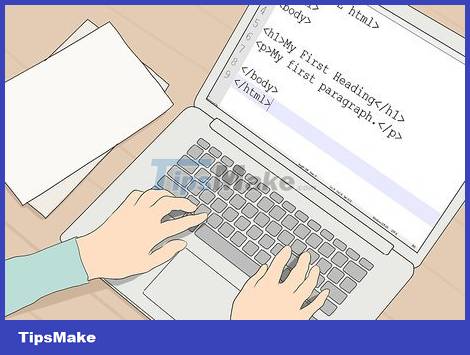
Get started with your first project. Choosing the right starting project will help you get familiar with the programming language. Among the many suggestions and tutorials online, a basic website for HTML, basic model and database functionality with PHP or simple programming and any compiled language are good starting points. Not bad for you.
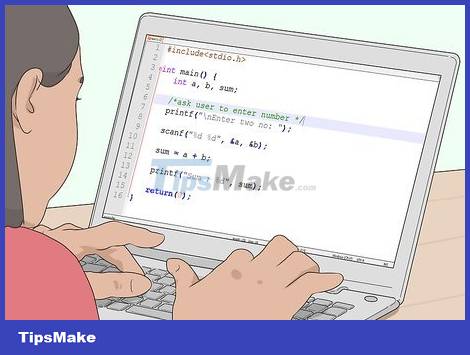
Take notes on every piece of code. Every programming language has a comment feature, allowing you to enter content that cannot be read by the compiler. Thanks to this feature, you can add notes to your code. These notes are very important. Not only do they allow others to understand how the code works, but they also help you remind yourself what the code is used for.
You can also use the annotation feature to quickly remove code from the program for testing purposes. Place comment tags around the code you want to remove and remove these tags for reuse.

Check out other web projects and programs. During the learning process, don't hesitate to look up and refer to other people's ways of solving problems. Take the time to explore and understand why the code works.
See this guide for details on how to read the source code of web pages.
Expand your knowledge

Join the class. Community colleges, technical schools, and online programs offer certificates and classes that will allow you to get a job as well as teach you programming. While not always necessary, an advanced certification like Computer Technology can help you find a full-time programming position.
Studying directly with a teacher or programming expert has many advantages. This is something that not all online resources can provide.
Taking classes can be very expensive. Therefore, consider the benefits you get. If programming is just a hobby, signing up for classes probably won't be worth the time and money. If you want to pursue this career, taking classes can be very beneficial for you (but it is not required if you are talented).

Expand your knowledge. Don't just learn programming languages, you'll benefit greatly from math and logic classes: they're often essential content for advanced programming. While it's not necessary to learn math and logic in school, the classroom environment can help.
Programming involves physical calculations and many simulations that require a deep understanding of algorithms and models.
Logic is the basic foundation of programming. Understanding logic and processes will help you solve problems when writing code.
Although most programming projects do not require the application of advanced mathematics, this knowledge can provide many benefits and optimization possibilities in programming.
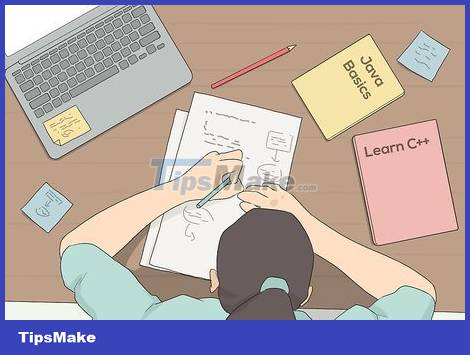
Learn more languages. Once you have mastered your first language, you can learn more. Look for a language that complements the first language or choose a language for the specific position you're targeting. Complementary languages, such as HTML and CSS, are often the easiest option to learn.
Java is one of the most popular languages, and usually Java developers also have a lot of opportunities. Java can run on a wide variety of systems and has countless applications. This language is used for Android applications, one of the fastest growing markets.
C++ is recommended for prospective video game developers. While not useful outside the video game industry, learning how to program on Unity (a widely used low-cost game console) and UDK (the programming code for the popular Unreal Engine) can open up some opportunities. certain association.
If you want to write iPhone apps, Xcode and Objective-C should be your main tools. You also need a Mac, because Xcode can only be compiled on this machine.
As a server programming language, Python is one of the easiest languages to learn. It's used for web services like Pinterest and Instagram and is simple enough that you can learn the basics in just a few days.

Please be patient. During the programming process, you will often face challenges, especially when finding errors and implementing new ideas. You will have to learn to be satisfied with small achievements rather than solving the entire puzzle at once. Patience will result in more efficient code, leading to better-performing programs and happier co-workers.

Learn how to work with others. When many people are involved, the project will have many different perspectives on its direction. Teamwork is almost inevitable in the business world. So, unless you plan to develop everything independently, be prepared to collaborate with others.

Find jobs that allow you to practice programming skills. Design websites or write computer applications by volunteering. Working part-time at a small company can give you the opportunity to write code for websites and simple applications.

Connect with other programmers. There are countless communities and meetups for developers. They can support and inspire you. Find local programming conferences, participate in talks or game programming competitions, and sign up for some programming forums to start expanding your network and presence.

Practice, practice and practice. You will need about 15,000 hours to be considered an expert in computer programming. It was years of practice. Without spending time practicing and becoming proficient, you will not be able to master programming skills.
Try to spend some time programming every day, even when you're not working. Programming in your free time can make breakthroughs and bring many new ideas.